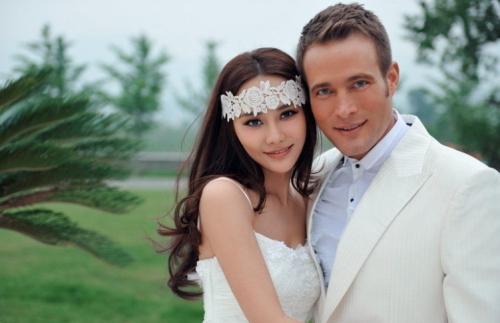Â
Â
Inter-Cultural Marriage in ChinaÂ
Â
è·šćœć©ć§»
Â
Â
Different perspectives among Chinese people
To start with, there are many Chinese in big cities that have a more âWesternâ or modern approach to relationships. Some of these people have spent time outside of China or simply have more liberal views. That doesnât mean that they all want to marry foreigners, itâs just that they and their families might be more open to it. They are also, perhaps, more interested in finding love before deciding to get married.
Some more traditional and perhaps envious people will think that the Chinese person has ulterior motives like wealth, social status, or moving abroad, but this mindset can be found in all countries and can be ignored for the most part. The best way to handle this criticism is through love and commitment to your partner.
Communication
Communication issues are more than just the language barrier. Even with good language skills, Chinese people will often answer simple questions with indirect answers like explaining the factors affecting the answer, instead of just giving the answer. Or they might answer the question with another question to get your opinion or to passively lead you to their point of view. Always keep in mind that the context of the relationship and recent events are always important for determining the actual intention of the response.
Marrying the family
There is a saying that, âIn China, marriage is not the business of two people; itâs actually the business of two families.â Just fifty years ago, arranged marriages were quite common. These days the child has more choice in selecting their spouse, but if they are of a certain age (late 20s) and still arenât married, the parents will likely try to set them up on blind dates. So keep in mind that if you are dating a Chinese person in their late 20s or older, they are probably looking for someone whom they might marry after a year or so. Additionally, Chinese parents have the feeling that their children are their property (in a loving way), so they can have more influence over their childâs decisions regarding marriage and other things.
Tips for meeting the family
·        Bring a gift
·        Let them know how happy you both are
·        Always respect elders and try to ignore disagreement
·        Try to speak some Chinese with the family. The more, the better.
·        Help the parents with chores or simple favors
·        Show them you are financially stable (even if you are not wealthy)
·        Show them you care about your family as that translates into creating a loving family.
Â
Chengyu for Relationships
Here are a few Chinese phrases or æèŻchĂ©ngyÇ that are related to marriage or might be used in the context of a wedding. ChĂ©ngyÇ shouldnât be used too often, but in the right context they can create a sense of mutual understanding and cultural appreciation, which can be very helpful when meeting the family.
Â
äžäșșæè sÄn rĂ©n chĂ©ng hÇ
Literally: the testimony of three men creates a tiger in the market
What it really means: Just because you have heard something three times does not make it true. As it applies to marriage, just because there are certain stereotypes about foreigners, Chinese people, and inter-cultural relationships, these stereotypes are not necessarily true. If someone says that your marriage wonât work because of these, feel free to reply with sÄn rĂ©n chĂ©ng hÇ and that should help them to understand.
Â
鞥ćéžèźČ jÄ« tĂłng yÄ jiÇng
Literally: a chicken cannot make itself understood by a duck
What it really means: Two people cannot communicate with each other. This can be used when language skills are not adequate, but it is perhaps more appropriate when there are cultural differences in communication style or mindset that cannot be overcome. Depending on the tone of your voice, this could be interpreted as âwhat a funny misunderstandingâ or âwe agree to disagreeâ.
Â
ć „äčĄéäż rĂč xiÄng suĂ sĂș
Literally: when entering a town, follow the customs
What it really means: This is basically the same as the western saying, âWhen in Rome, do as the Romans do.â In any inter-cultural relationship, there will certainly be endless cultural instances that are different from your home country. If you are both in China, then it can be useful to adopt this saying as your mentality and âtry anything onceâ, perhaps more than once⊠And when you are in the West with your spouse, rĂč xiÄng suĂ sĂș can be a helpful phrase to cajole them into trying new things.
Â
Related Article: Marriage Culture in China
Â
Are you a foreigner with a Chinese husband or wife? Would you like to learn more Chinese so that you are not always jÄ« tĂłng yÄ jiÇng? Check out our intensive programs, part-time Chinese classes, or 1-on-1 private tutoring. Classes are also available via Skype if you arenât in China. Or just contact us directly with your interests and questions. We look forward to hearing from you.

